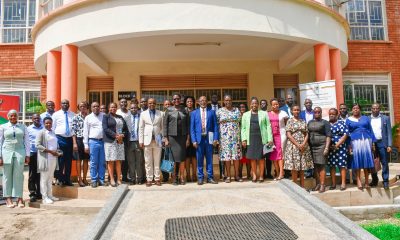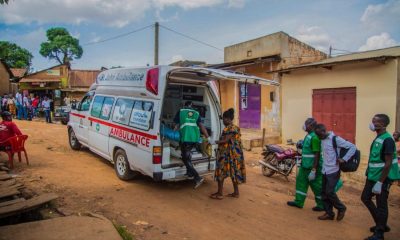In this second edition of our newsletter, the focus is on transformation of Agricultural Higher and Tertiary Education in Africa. The interest in this topic arises from the fact that our continent is currently able to create new jobs for one third of its annual 10 million workforce entrants. While the continent is endowed with several bio-physical resources, including 65% of the world’s remaining land suitable for arable agriculture, productivity of the sector is still low. According to various reports including apex agencies on the continent like the African Development Bank, Africa’s economy remains resilient even after the COVID-19 economy lockdown and ongoing externalities.
Collectively, Africa has demonstrated ability to grow even under unfavourable conditions in part due to its endowments, especially, its most precious assets, the human capital and growing conducive investment environment. In 2022 for example, Foreign direct investment (FDI) flows to Africa reached $83 billion – a record – from $39 billion in 2020, accounting for 5.2 per cent of global FDI. Such interest in the continent, impacts Africa’s key sector of agriculture, that underpins livelihoods of 60% of its 1.4 billion people and the average Gross Domestic Product of 20%. The Higher Education sector especially for Agriculture and its related disciplines, must cease the opportunity of the moment to develop the relevant human capital that will drive economic transformation. African Universities, the anchor for agriculture, higher and tertiary education must also play leading roles in developing innovations, and creating business opportunities for its young graduates and economy. This is more agent given the fact that the future of jobs across Africa show that only 20% of graduates will ever find a job in formal employment. The vast majority must therefore engage in the economy through self employment, agriculture and service delivery being the bedrock for that process.
It is in that regard, that RUFORUM is focusing its 19th Annual General Meeting, on transformation of Agricultural, Higher and Tertiary Education. and this newsletter highlights some of the work that Africa’s universities are doing in that regard. In this Issue, we reflect on the future of higher education in Africa given the opportunity and challenges it faces: Strategic partnerships with Africa’s private sector to create jobs and wealth; conversations and dialogue on the need for integrated training programming across university programmes; Inclusive training of the next generation of Africa’s Scientists and human resources, and; strategic research in climate science. The issue also contains voices from the field in which Africa’s young workforce shares the work-life transition from studentships supported by RUFORUM and implemented by Member universities and communities. This is an interesting development as it demonstrates the African spirit of ubuntu (humanity) with the young people giving back to their communities, by enhancing resilience to climate change, skilling farming communities in productive agriculture while creating jobs and wealth. All this has been made possible, by the unwavering support of our member universities and their partners, African Governments, Development Partners, diverse communities and partners, and friends in the global south and north. to these partners, we say Thank you and pledge our commitment to collaboratively work in enabling Africa build an equitable and thriving place, the aspiration of Agenda 2063: The Africa we want.
Professor Patrick Okori
EXECUTIVE SECRETARY
View Newsletter on RUFORUM


 General2 weeks ago
General2 weeks ago
 Natural Sciences2 weeks ago
Natural Sciences2 weeks ago
 Agriculture & Environment1 week ago
Agriculture & Environment1 week ago
 Health2 weeks ago
Health2 weeks ago
 Health2 weeks ago
Health2 weeks ago














